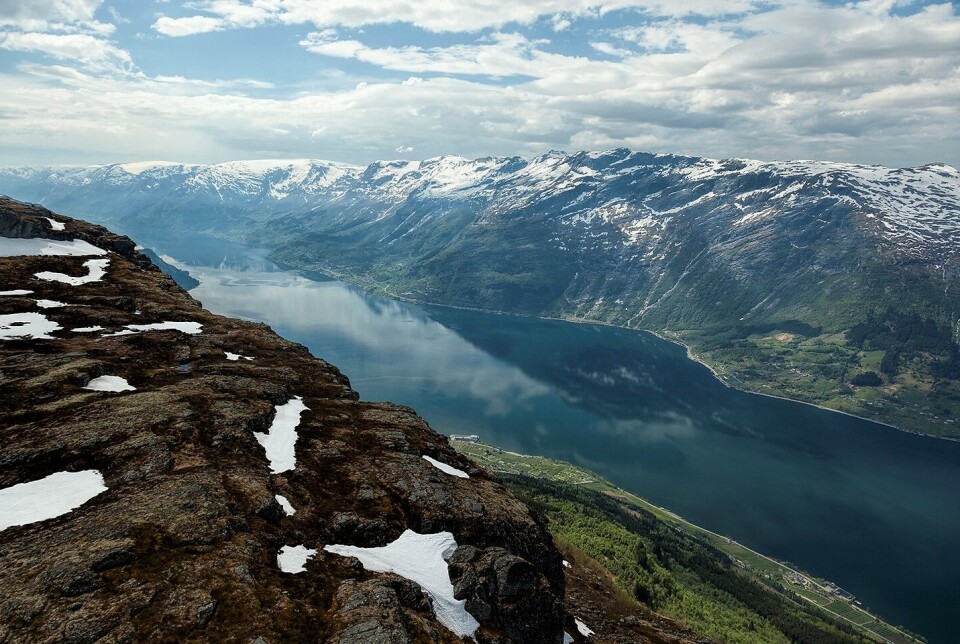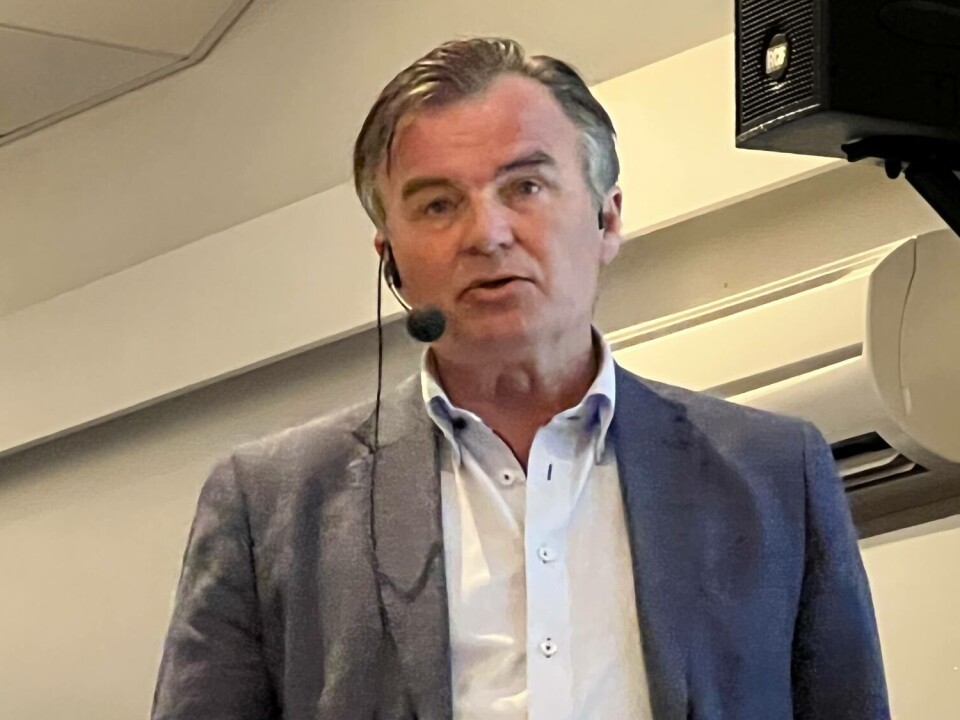
£8.7m project will investigate effects of sludge collection in Norwegian fjord
A NOK 120 million (£8.7m) project financed by the European Union will evaluate the impact that collection of sludge from net-pen salmon farms has on the environment of Norway’s Hardangerfjord, where 100,000 tonnes of salmonids are produced annually.
Research institutions NORCE and the Institute of Marine Research will measure the effects of the sludge collection, while the industrial players Ragn-Sells and Framo will contribute, among other things, technology for the collection of sludge from open cages.
Framo has LiftUP technology for collecting sludge from open cages, which is then filtered and stored for further processing. Ragn-Sells will contribute technology to convert the sludge into phosphorus which can be used as a new feed ingredient and fertiliser in agriculture.
Five fish farmers
Five fish farming companies are taking part in the four-year project: Eide Fjordbruk, Erko Seafood, Lingalaks, Tombre Fish Farms, and Bremnes Seashore, all located within Rosendal in the 179-kilometre fjord, the fifth longest in the world.

“This is a very important project for us farmers. We want to operate as sustainably as possible and want clear answers to how our business affects nature,” said Geir Magne Knutsen, head of strategy and development at Bremnes Seashore.
Eide Fjordbruk general manager Sondre Eide said: “All the farmers participating in this project are located around the Hardangerfjord, and we all want to farm in as sustainable a way as possible to secure both jobs and our fjord.”
The project, called AquaPhoenix, is one of only three applications granted from 30 made to the EU’s Horizon programme.
“This says something about the importance of documenting the effect collection of sludge can have on improving the marine environment in our fjords,” said Hans Kleivdal, assistant executive director and head of business development at NORCE Climate and Environment.
Lessons for Finland
AquaPhoenix has 30 partners, including the Åland Fish Farmers’ Association. The Åland Islands are an autonomous archipelago belonging to Finland, and situated between Sweden and Finland, where the Gulf of Bothnia meets the Baltic Sea. The Baltic faces major environmental challenges due to high levels of nutrients from, among other things, agriculture and industrial emissions. Therefore, Finnish fish farmers are not allowed to increase production for environmental reasons.
“The Finnish government wants to increase fish farming in the country. This project provides us with important learning that can be transferred to farming in the Baltic Sea,” said Rosita Broström, operations manager at the Association.
Muck and money
Martijn Bergink, business unit president pumping systems at Framo, said sludge from fish farming was a wasted resource.
“We anticipate that the collection of sludge will become a large industry both locally and internationally in the future. Framo has a strong focus on developing industrial sustainable solutions and wants to become a leading player in this market,” added Bergink.
Vidar Svenning Olsen, managing director of Ragn-Sells Norway, said: “Circular technology for aquaculture facilities results in a lower climate footprint, less stress on the fjords and more fish from each facility. At the same time, we utilise valuable raw materials and contribute to reducing Europe's dependence on imported energy and nutrients.”
The AquaPhoenix project will begin in the autumn.
























































